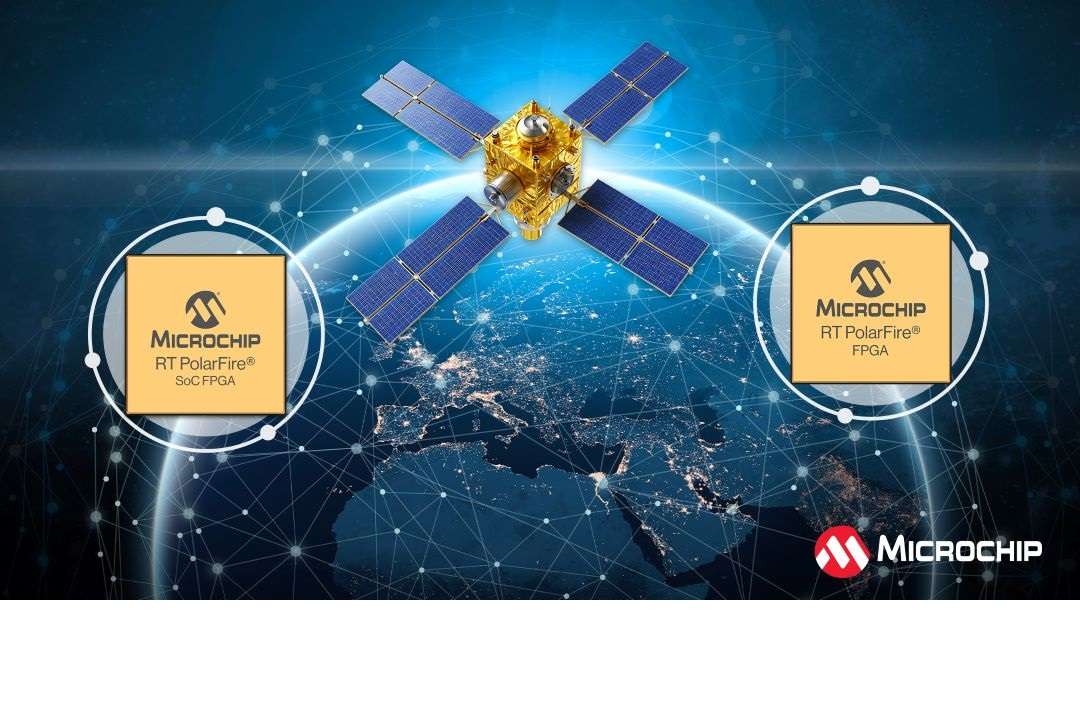Microchip Technology has announced key advancements in its space-ready FPGA product line, expanding support for high-reliability aerospace applications. The company’s RT PolarFire® RTPF500ZT FPGA has now achieved MIL-STD-883 Class B and QML Class Q certifications, while engineering samples of the RT PolarFire System-on-Chip (SoC) FPGA are now available for space system developers.
These developments reinforce Microchip’s extensive track record—spanning over six decades—in supplying robust and power-efficient solutions for space missions, from Earth orbit to deep space exploration. The certifications—MIL-STD-883 Class B and Qualified Manufacturers List (QML) Class Q—are critical benchmarks for space-grade components. Defined by the U.S. Department of Defense and the Defense Logistics Agency, these standards ensure devices are rigorously tested for durability and performance under harsh environmental conditions, meeting the strict demands of aerospace and defense sectors.
RT PolarFire FPGAs differ from traditional SRAM-based designs by using nonvolatile memory, which eliminates susceptibility to radiation-induced configuration upsets. This architecture reduces system complexity and cost by removing the need for external mitigation measures.
In addition, these devices consume up to 50% less power than competing mid-range solutions, supporting designers in optimizing Size, Weight, and Power (SWaP) for space platforms. The RTPF500ZT model enhances the original PolarFire FPGA with improved resistance to Single Event Latch-up (SEL) and more robust capabilities for in-mission reprogramming.
“Our long-standing support for critical space programs continues with these latest product milestones,” said Shakeel Peera, Vice President of Marketing and Strategy for Microchip’s FPGA division. “We prioritize quality, regulatory compliance, and mission-ready performance, and are committed to meeting the industry’s growing need for advanced logic density, performance, and security.”
The RT PolarFire SoC FPGA further expands Microchip’s space-grade offerings. Featuring a RISC-V®-based microprocessor capable of running Linux alongside a deterministic real-time processing core, this SoC combines the flexibility of software programmability with the reliability of proven hardware architecture. It is positioned to support central satellite processing, avionics systems, and payload control with an expected path to full QML Class V and Y certification.
Designers can leverage Microchip’s Libero® SoC Design Suite, which includes a full suite of IP, development tools, and system-level reference designs tailored for space applications. Integration with the Mi-V ecosystem allows for seamless RISC-V development, and available hardware platforms enable streamlined prototyping and validation.
These new qualifications mark another step in Microchip’s ongoing work to meet the rigorous needs of the aerospace sector. The company continues to invest in solutions designed for reliability, innovation, and long-term mission success.
Microchip Technology Inc develops embedded control and processing solutions designed for secure, connected, and intelligent applications. With a broad product portfolio and streamlined development tools, the company supports efficient system design aimed at reducing development risk, cost, and time to deployment. Serving more than 100,000 customers worldwide, Microchip’s technologies are applied across sectors including industrial, automotive, consumer electronics, aerospace and defense, communications, and computing. Based in Chandler, Arizona, the company maintains a focus on reliable product delivery, high manufacturing quality, and strong technical support.








